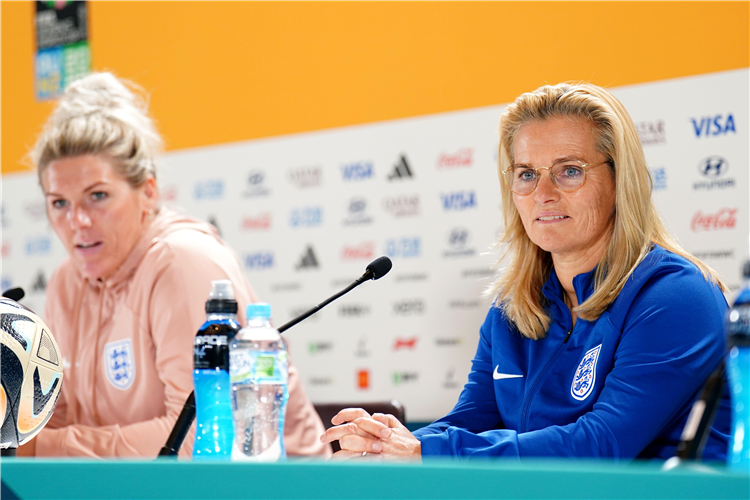
When England last featured in a World Cup final in 1966, the nation's women were barred from playing football.
It took another four years before the Football Association ended a near 50-year shutout and allowed half of England's population to play the game the country had gifted the rest of the world.
On Sunday at Stadium Australia in Sydney, Millie Bright will become the first English captain to lead her country into a World Cup final since Bobby Moore 57 years ago.
Like Moore, who was chaired off the Wembley pitch by his teammates after England's 4-2 victory over West Germany, Bright is a central defender wearing the No.6 shirt.
She embodies the spirit of her team and is aware of the symbolism and significance of a World Cup final win.
"To now be sitting here and knowing that we're in the World Cup final is phenomenal," Bright said.
"The growth of the game has been incredible."
Progress has been a running theme of this tournament.
England face Spain with neither team - despite their countries' pedigree in the men's game - having previously featured in a Women's World Cup final.
Traditional heavyweights Germany, Norway and the USA, who have won seven of the eight World Cup titles between them, all failed to get past the round of 16.
Colombia announced themselves as a force, and Morocco broke new ground, becoming the first Arab and majority-Muslim nation to qualify for the finals, with defender Nouhaila Benzina the first player to sport a hijab at the World Cup.
This tournament, co-hosted by Australia and New Zealand, broke attendance records, with a further 75,000 fans expected at Sunday's final in Sydney and broadcast viewing figures reaching new heights.
"Almost all of us players, we've grown up thinking that football was something that didn't belong to us," Spain defender Irene Paredes said.
"There were always obstacles. Throughout the years we've reached a higher level and it's important for everyone to know that we can play in a World Cup final."
Spain are proof of the changing face of the women's game, having never previously got past the round of 16.
Their build-up to this tournament was dominated by a player revolt against coach Jorge Vilda.
When Spain lost 4-0 to Japan in their final group game, things could have turned sour very quickly but they regrouped and earned their place in the showpiece mach courtesy of a dramatic 2-1 win over Sweden.
England, by contrast, have been steadily growing into a force in women's football over the last decade.
Dutch boss Sarina Wiegman added the finishing touches and helped them get over the hump of semi-final losses to lift last year's European Championship.
So, is Bright the captain who can make sure that, in the words of the song adopted by the country's success-starved soccer fans, football's coming home in 2023?
"It's a dream come true - there are no words to describe it," Bright said.
"We're pleased with how far we've come. Now we've got a shot at the trophy we have always wanted."







